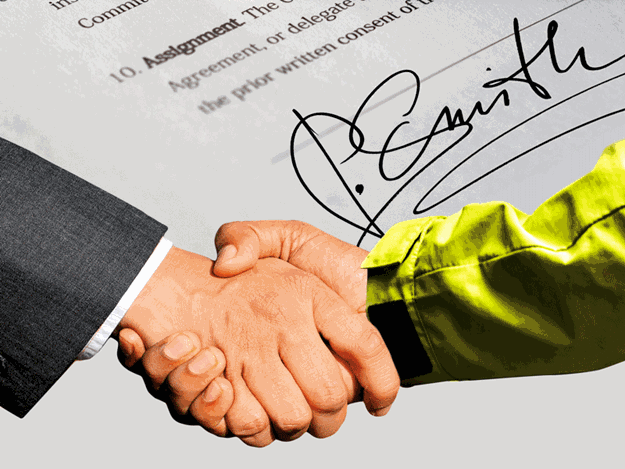Legal Column: When employment law advocates can help
With redundancy rates high, employment law advocates can help guide employees through the process

It’s often a struggle to maintain relationships required to fulfil all the requirements and expectations people have for each other in a workplace. Now more than ever, with businesses struggling, the cost of living, and the stresses of life, people can find themselves in difficult situations at work.
Redundancy rates are high with employers having to make cuts they sometimes wish they did not have to. With the stress of life, people are making more mistakes that end up costing someone at the end of the day.
Companies move to eliminate issues before they may arise or get out of control and often take drastic steps, sometimes justified yet other times not so. They may have been worked out given a bit more time and compassion.
There are times when it’s legitimately necessary for a company to solve their staffing issues with dismissal, however, every employee has rights with regard to natural justice, having a fair opportunity to be heard, and that their statements are fully considered fairly and genuinely before a decision is made about them.
An employer is required to act fairly and reasonably in all circumstances. Unfortunately, often, all the right things are not done. Sometimes in haste or malice, sometimes just executed incorrectly.
Where there are legitimate claims to be taken for an employee, we obtain financial compensation for them. Whether dismissed or still employed, if there’s a case, we’re able to help.
This is where the help of an employment law advocate comes in to help guide the employee through the process whether that be to help an employee to keep their job or to obtain financial compensation for the burden. We are employment law advocates.
The types of cases we commonly deal with
Unjustified dismissal
Commonly referred to as unfair dismissal and technically termed as actual dismissal. This is termination of employment at the initiative of the employer. The employer has a duty to justify its actions in New Zealand employment law.
Constructive dismissal
This is a claim where, in essence, the employee is firing the boss. The employee resigns due to either being given an option of resigning or being fired, or a breach of duty or course of conduct that’s sufficiently serious that resignation is reasonably foreseeable.
These claims are more difficult to establish particularly given the shift in onus in proving the claim. The onus is on the employee to establish constructive dismissal, compared with the onus of an employer to demonstrate an actual dismissal as being justified.
90-day trial period dismissals
Often, we find that employers make mistakes in the wording of the trial period clause in the employment agreement being compliant with the legislation, or the formation of the agreement typically in the employee starting work before being given an employment agreement with a trial period in it and most commonly where the employer does not give notice correctly under the trial period. It’s rare for us to see trial period dismissals done correctly by the employer.
Unjustified disadvantage claims
An unjustified disadvantage is where a decision is made by an employer to the employee’s disadvantage and it’s unjustified. For example, an employer unilaterally deciding to suspend an employee from work without pay and without justification for suspension.
Redundancy
This is dismissal. The employer bears the onus of justifying redundancy both substantively and that it was procedurally fair.
Serious misconduct
We see this term loosely and widely used and misapplied. An employer is required to investigate allegations fully and fairly before undertaking a process to dismiss an employee for serious misconduct.
Other types of cases include:
- Disciplinary meetings, performance meetings, and redundancy meetings
- Large wage arrears and holiday pay claims
- Human rights complaints such as unlawful discrimination and sexual harassment
The process
The process begins in the first phone call. For example, a dismissed employee will call our 0800 WIN KIWI (946 549) and we will have a brief discussion about what happened.
Some of things we need to start a case:
- The client will fill out our Case Form at or our website
- We need all contemporaneous communications such as relevant letters, e-mails, text messages, and phone call logs
- A detailed timeline of events setting out what happened, although, in simple cases, we can advance with a basic idea of the facts of the matter
- Every employment relationship problem has different facts and circumstances, therefore, to advance a case properly we do so in a calculated way
The next step is to raise a personal grievance for the employee. A personal grievance must be raised within 90 days of the action or dismissal or within 90 days that said action or dismissal came to the notice of the employee. Doing so will secure the employee’s right to take their claim to the Employment Relations Authority within three years.
We will try and negotiate directly and use the Mediation Service. The client is not required to do anything other than write a witness statement or impact statement; we will do the work. If the matter does not resolve, we then turn to take the case to the Employment Relations Authority.
No win, no fee
Inability to pay anything upfront is not a barrier to pursuing a case in our business. If there’s a good case to be taken further, then we consider offering a ‘no win no fee’ contingency fee arrangement. Some cases will require a small commitment fee upfront.
We trust a client has commitment that we have the real opportunity to achieve a successful result, and we make an investment in the case and work diligently to achieve a successful result. Ninety percent of the time, our fees would be paid directly by the employer and the client will be paid their compensation.
What resolution looks like
The dispute resolution process is not one of blame; it’s not retribution or punishment. If one were to go to the Employment Relations Authority or Court, there’s only financial compensation as a final result if an employee secures a win.
Resolution is hopefully a realistic compromise by both parties to come to a financial understanding. Our aim is to reduce the situation’s impact emotionally, monetarily, and timewise hopefully before any formal litigation begins. We start with direct negotiation and the mediation process. However, if this is unsuccessful, we assist clients with formal litigation.
What we can do for employers and employees
While we take cases for employees and often do so on a ‘no win no fee’ basis to obtain compensation, lost wages, and costs, we also defend employers and give appropriate advice to employers on how to manage employees.
We represent our clients in direct negotiations, the Employment Mediation Service, the Employment Relations Authority, and the Employment Court. Whether you’re an employee or employer who needs assistance with any employment issue, we’re are here to help.
No matter the situation, we recommend you speak to us for professional advice before you take action.

For more details, contact Lawrence Anderson on 0800 946 549 or Lawrence@AndersonLaw.nz or visit AndersonLaw.nz.
Find new and used machinery for sale in NZ
Keep up to date in the industry by signing up to Deals on Wheels' free newsletter or liking us on Facebook.

.gif)
-(1).gif)
.gif)

.jpg)

